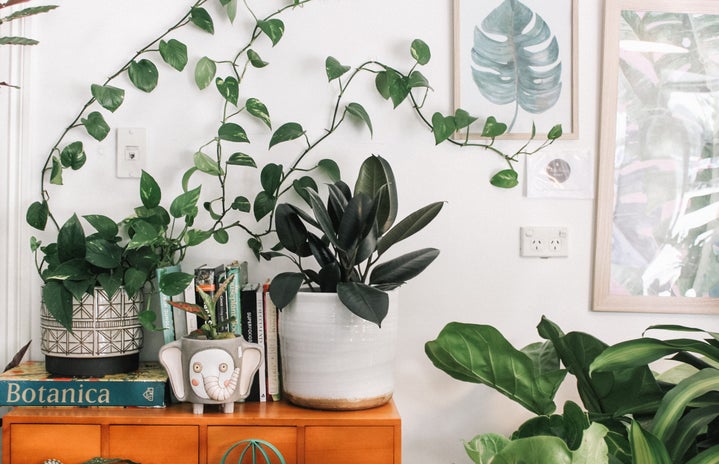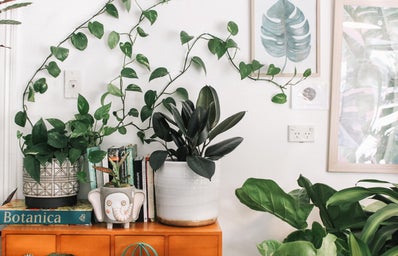For an urban dweller, particularly one who lives in an apartment, keeping indoor plants is both a leisurely break from bustling schedules and a substitute for a garden. In recent years, the popularity of indoor plants or gardening has boomed thanks to the Internet. In addition to platforms such as Instagram and Pinterest, books have also contributed to the rise of an ‘aesthetic’ culture revolving around plant keeping. Quarantine has witnessed a rapid increase in plant owners as lockdown forced home dwellers to channel their suppressed energy into something worthwhile, thus leading to houseplant savants taking to social media to teach viewers how to care for plants. In spite of the supposed laidback quality of raising houseplants such as succulents, it still requires a degree of intensive care – especially so for those who have absolutely no experience with plants.
A problem that often goes unnoticed is the development of mold. Due to conditions such as overwatering and the environment (e.g. unaerated dark rooms), mold can fester on the surface of the soil. Mold grows more easily when there is dead plant matter such as fallen leaves. Inside an enclosed home where there is little change in the air, heat, and humidity, houseplants are prone to fostering mold. Usually appearing as grey or blackish fuzz, mold poses health risks as particles could be inhaled; a serious hazard for people with asthma. Terracotta pots should be avoided as their porous surface easily harbors mold. Ventilation is a primary step in mold prevention by reducing humidity levels. Removing possible ‘food’ for the mold is also vital so regular cleaning inside pots for debris is another routine for plant keepers.
Pests are a common trouble when keeping houseplants. Completely exposed to the elements, outdoor gardening involves constant care against pests, disease, as well as damage by natural forces such as strong winds. Though houseplants seemingly demand less attention than regular gardening, they still carry risks of unwanted pests inside the house. One typical pest is the fungus gnat (sciarid fly), a tiny black fly that normally scurries over surfaces or flies slowly. Although the fly is harmless towards humans and fully grown plants, its larvae can damage seedling roots and the base of soft cuttings. At the same time, the presence of fungus gnats is an indicator of overwatering and possibly mold. Occasionally, houseplants may already harbor pests inside the soil by the time they have been purchased. Aphids, for instance, may be attached when the plant was still sold or grown outdoors. Most pests could be simply removed with environmentally friendly insect sprays or applying a concoction of rubbing alcohol, water, and dishwashing detergent to the affected areas.
When plants seem listless, applying a little amount of sparkling water is a quick and simple remedy. Though it may seem unlikely to give what is normally a drinking beverage to a plant, sparkling water offers macronutrients including carbon, potassium, phosphorus, and sulfur which encourage photosynthesis. However, it is necessary to keep in mind that sparkling water is slightly acidic compared to still water and thus, should be given sparingly. In addition, different plants require different pH levels (acidic or alkaline) and so, sparkling water should be only given to plants that prefer acidity. Small amounts should be initially tested to see whether it benefits the plant.
While maintaining houseplants may seem laborious, it helps keep a sense of orderliness for its routine tasks such as watering, rotating plants towards the sun, etc. In such times where we’re often spending time at home, keeping houseplants serves both as a pastime and an important motive to stay on an organized living pattern. During quarantine for example, it is easy to lose track of the time or fall into a sluggish lifestyle from the drastic changes in activity. Keeping a houseplant provides an outlet to divert penned energy and hopefully foster a new interest in plants.


